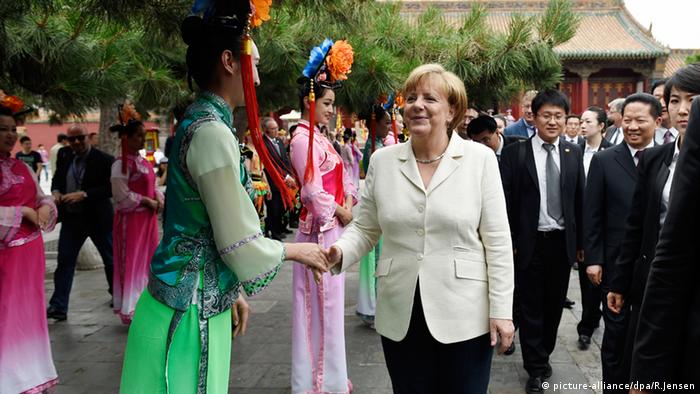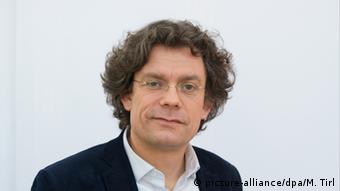Asia
Sierens China: Quiet Blood
Your probably so far the most difficult trip to China, Merkel comes back with a positive balance. Despite the sensitive topics, the political relationship between the countries remains pragmatic, says DW columnist Frank Sieren.

German Chancellor Angela Merkel is in China, a political master guest, is deemed to be very reliable and most important contact person in Europe. For the ninth Time, she was until Tuesday in the people’s Republic. However, it was not a routine visit. There are some difficult topics dammed had: the conflicts in the South China sea, the new NGO law, and especially the market economy status for China with the Central question of how open the markets for German in China and for Chinese in Germany.
The displeasure in Beijing is more directed against Brussels. In Brussels, one hesitates visibly, a promise to redeem, the the Chinese 15 years ago accession to the world trade organization (WTO): by December 2016, as a market economy. The EU Parliament has already spoken out against it. The Chinese have threatened with a trade war. Also economy Minister Sigmar Gabriel does not see China as a market economy.
Dispute: A Market Economy Status
In addition, Gabriel was unhappy, in view of the planned Chinese investments in the appliances manufacturer Midea device in the Augsburg-based robot manufacturer Kuka. The company Midea plans to increase its stake in the company to 4.5 billion euros from 13.5 to a maximum of 49 percent. So the Chinese get deeper insight into the world’s leading German technology. That bothers Gabriel. He would rather have a German or European investors. But currently have no interest.

DW-columnist Frank Sieren
Beijing has certainly not expected in this difficult situation, Merkel more as a proof of Love. And the Beijing diplomatic, has very cleverly, also get: “We don’t want to put the commitment into question,” said the Chancellor to the assurance in Paragraph 15 of the WTO Treaty, China gets after 15 years in the market economy status. That is for Germany and China a very important sentence. Because he takes the pressure out of the debate and shows that Germany uses the EU for China’s market economy status.
Special solution for steel exports?
At the same time, the sentence opens the way to begin negotiations on the small print. Because it must be found at the end on a kind of “market economy status light”, in critical issues – such as, for example, steel exports – special solutions. There are convincing arguments in: Beijing can not expect the European politicians to act against their voters. Or to put it even more pointedly: The EU politicians will not risk for the sake of good relations with China, their re-election. The need to understand Beijing, and therefore willing to negotiate.
You can regret it, but not overnight change, that the German – but also the EU population – is concerned, given the rise of this vast country. It is only once regardless of whether these concerns are justified or not. In the economy of the EU, the objections, in turn, are solid: The EU-managers and entrepreneurs are not annoyed by the fact that European companies have the same open access to the Chinese market like the Chinese, to the European market.
A compromise solution is possible
In this area, Beijing has to repair properly. So, market economy status, – Yes. What you were Russia, you can not honor China now. And it is also a bit odd, if you study how the EU is a binding contract, and 15 years later, then the Parliament can vote on it with the note, it was just so common in democracy. Such moves do not strengthen trust in the power of democracy. But that may not mean that Beijing cannot rest on the Status. The Chinese need to do your homework, if you want to prevent, that the discontent with China is larger.
Since France and especially the British have already indicated that China will get market economy status, the way is now free for a solution that everyone can live with. The victory of pragmatism in the Sino-German relationship could also be a victory for the European-Chinese relations if the EU permits the Commission now, and the sound, the Merkel, he added, assumes: market economy status – Yes, but exceptions are necessary.
Our columnist Frank Sieren has lived for more than 20 years in Beijing.